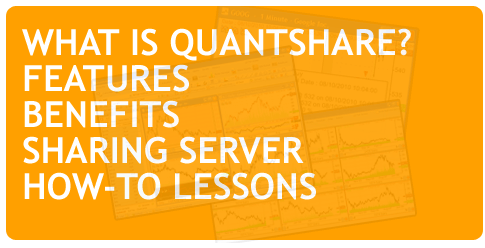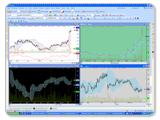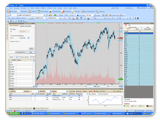 Insider trading refers to the trading activity of an individual who is privy to non-public information of the company whose stock he’s trading. There are trading rules, which insiders of a company have to abide. These rules restrict the buying or selling of the company’s stock based on nonpublic information to prevent breach of trust and confidence and to maintain good faith in the market. Insider Trading Defined It’s very common for employees of a company to own numbers of share or stock option of the same company. However, the term “insider” often refers to the company’s inner circle of management. This includes the company’s board of directors, senior officers, and shareholders who owns more than 10% of the company’s outstanding shares. A common employee may also be considered an insider if he is privy to the overall health or upcoming news release of the company. For example, a journalist who is a regular employee of Company A may have learned the imminent takeover of Company B while doing his duties. Knowing that the stock price will likely rise following the takeover, he will buy shares of Company A. That would be considered insider trading. Insider trading is not just limited on employees of the company. Sometimes, devious schemes might be devised by top officials to avert suspicions of insider trading. The official may engage another party in a quid pro quo arrangement. For example, a CEO of Company A knows about a takeover deal and passed this information to someone he knows who traded Company A’s stocks based on this information. The CEO as well as all other parties involved are liable for breaching trust and confidence and therefore, the activity is considered as insider trading. Another scenario of insider trading is the misappropriation of a company’s nonpublic information to trade other stocks. For example, a senior officer of company A knows that Company B will takeover Company A. Knowing this; the senior officer will buy shares of Company B since its stock price will most likely rise following the announcement of the takeover. The officer may not have violated his fiduciary duty to Company A; but he is still liable for insider trading since he traded based on nonpublic information. Not all trading based on nonpublic information is considered illegal. A good example is when you go to a restaurant and you accidentally hear the CEO and COO of Company A discussing that the earnings of the company is higher than expected and the information was not yet released to the public. If you buy shares of the company based on what you learned, you will not be guilty of insider trading. But if the information obtained is the tender offer in an acquisition or merger, it’s best for you to abstain from trading since information of this nature are held in higher regard. How is Insider Trading Tracked? Insiders of a company are required by law to report their trades. This makes it easier to track instances wherein a breach of trust has been made by insiders. However, there are devious ways that insiders can employ to avert suspicions. They can use offshore companies; hide behind nominees; or use other proxies. Securities and Exchange Commissions (SEC) as well as major stock exchanges are always on their toes to lookout for shady activities like this. And the law provides hefty reward to whistleblowers who can provide useful information on insider trading. The reward may amount to 10% of the criminal fine. And true enough; the Securities and Exchange Commission prosecutes an average of 50 cases of insider trading every year. Penalties for Insider Trading The Securities Exchange Act of 1988 has imposed severe fines on anyone guilty of insider trading. Criminal fine for this practice is at $1 million. There is a caveat to this rule however; a person can be fined up to a maximum of $2.5 million. Prison sentence for this infraction is at 10 years. Some group of investors often tracks the trading activity of some top management of a company. They do this knowing that the officer has insights on the overall health of the company and therefore, in a better position to know if it’s a good investment or not. It may be a good investment plan. However, it could have been a simple diversification strategy for that official. At which case, it’s still a risk that investors who follows trading activity of a company’s top officer have to take. comments powered by Disqus |

|
|
|
|







